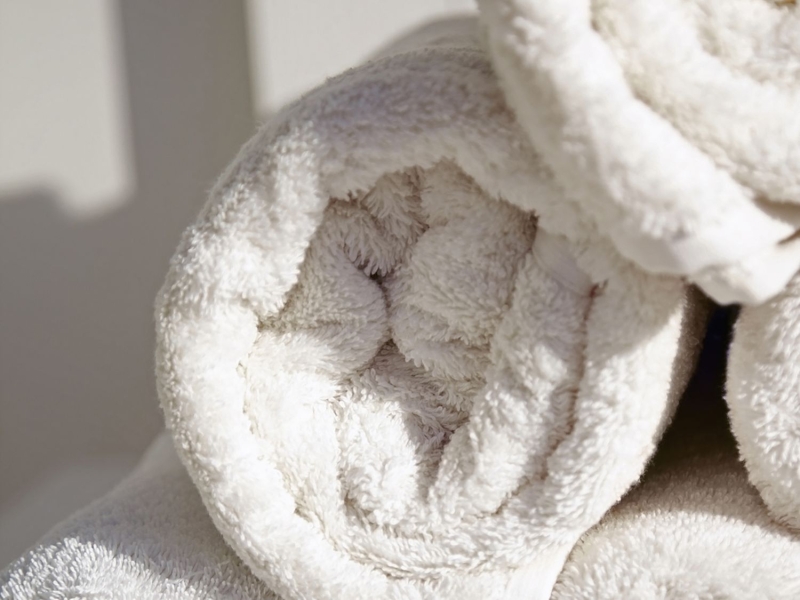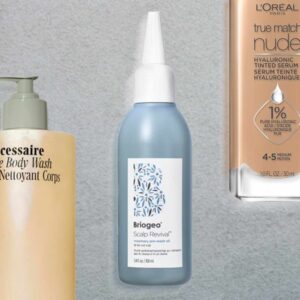Close

Alternatives The Final Takeaway
When you hop out of the shower each morning in a mad dash to get ready for work, do you have a habit of drying your face with the same towel you just used to dry your body? For many people, that would be a resounding yes. While using a body towel on your face is certainly convenient (and feels like an obvious move), you might want to reconsider. The reason? According to dermatologists, using your body towel on your face can introduce bacteria and irritants to your skin that can cause breakouts and other issues.
Keep reading to learn more about why you should consider using a different towel on your face and body, how frequently to swap out your face towel, and some face towel alternatives, straight from board-certified dermatologists Jocelyn Lieb, MD, and Hannah Kopelman, MD.
Do You Really Need a Separate Towel for Your Face?
It's a good idea to use separate towels for your face and body, the dermatologists tell us. There are a couple of reasons for this. For one, the skin on your face is more sensitive than the skin on the rest of your body, says Kopelman.
You also want to be careful not to transport bacteria and other irritants from your body onto your face. "A towel that's been used on your body may harbor bacteria, oils, and dead skin cells that can easily be transferred to your face, increasing the risk of breakouts, irritation, or even infections," Kopelman says.
What Can Happen If You Use Your Body Towel On Your Face?
As Lieb explains, all of your skin doesn’t react to bacteria the same way. Meaning that the skin on some parts of your body may tolerate certain types of bacteria even when the skin on other body parts can’t. So some types of bacteria might not cause any issues on your back or groin, but you don’t necessarily want that same bacteria on your face. «A good example would be the groin area and the E. coli bacteria,» Lieb says. «If E. coli gets on the face and causes what looks like pimples, they could be tricky to treat and be more inflammatory, leading to scarring.»
Additionally, your back, chest, and feet tend to produce more sweat and oil, and people often use body lotions and oils on their skin. "Using the same towel for your face can introduce these unwanted elements to your more sensitive facial skin," Kopelman says. "A clean, separate towel helps reduce this risk and keeps your face more hygienic."
How Often Should You Switch Out Your Face Cloths?
According to Lieb, you should replace your face towel after every use.
If your skin isn’t sensitive or prone to acne, you may be able to use your face cloth a bit longer. In this scenario, Kopelman suggests switching to a new face towel every two or three days. «This ensures you’re using a clean towel and minimizing bacterial buildup, which can lead to skin problems,» she says. «If you have acne-prone or sensitive skin, changing it daily might be even better.»
When washing your face cloths and towels, Lieb says you should aim to use hot water and hypoallergenic detergent. "Do not be fooled by organic or all-natural detergents," she says. "They often have ingredients that may be from plants, but as we all know from poison ivy, plants can cause problems too."
Are There Alternatives to Face Towels?
If you're looking for an alternative to face towels or washcloths, you have a couple of options. Here's what the dermatologists we spoke with recommend:
- Makeup remover wipes: Makeup removing wipes are an option, but they may not be ideal, depending on your skin type. Lieb notes that these wipes often contain harsh chemicals and preservatives, which may not be the best for your skin.
- Disposable cotton pads or microfiber cloths: These are specifically designed for facial cleansing. «These are often gentler and more hygienic, as they can be thrown away or washed after a single use, preventing the spread of bacteria,» Kopelman says.
The Final Takeaway
Using your body towel on your face isn't the greatest idea. When you do so, you run the risk of transporting bacteria and other irritants to your face. If you have sensitive skin, this is even more likely to be a problem. Dermatologists say it's wise to use separate towels for your face and body. You can also use something like a washcloth, a disposable cotton pad, or a microfiber cloth. If you're unsure about all of this or feel like your skin is reacting poorly no matter what you use, it's a good idea to seek advice from a board-certified dermatologist.


